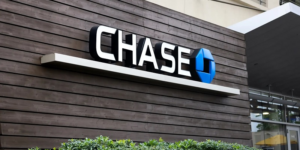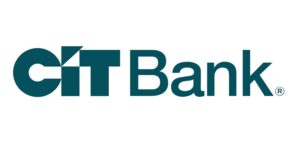Chase Payment Solutions and Square are some well known and notable card processors. To find out what makes either of them so well desired by businesses, continue reading this review below.
Chase Payment Solutions is a subsidiary of JP Morgan Chase, and they offer various cards that are reliable for all sorts of businesses. No matter what kind of business you have, independent retail shops to larger corporations, they can help you succeed!
On the other hand, Square aims to benefit small businesses that don’t garner as much transaction volume. They offer several kinds of Point of Sale services that all come with their own features.
| Card Processor: | Chase Payment Solutions | Square |
| Type Of Provider: | Direct processor | Aggregator |
| Type Of Processing Fees: | Tiered or interchange-plus | Interchange-plus |
| Contract & ETF: | Month-to-month, no ETF | Month-to-month, no ETF |
| BBB Rating*: | B, 33 complaints closed in the last 12 months. | No rating, 1,232 complaints closed in the last 12 months. |
| PROMOTIONAL LINK | LOAN DETAILS | REVIEW |
| Intuit Quickbooks Payments Best for QuickBooks users. | In-Person Payments: 2.40% & 25 cents per transaction Online Invoices: 2.90% + 25 cents per transaction | Review |
| Square Best low-fee mobile card processor. | In-Person Payments: 2.75% per transaction Online Invoices: 2.9% + 30 cents per transaction | Review |
Products and Services
Down below is a list of services that each of these credit card processor provide. Consider all of these features and see if either Chase Payment Solutions or Square works best for you.
| Chase Payment Solutions | Square |
| Merchant accounts | Payment processing |
| Credit card terminals | High-tech developer tools |
| Payment getaway | Card readers |
| Virtual terminal | Billing (invoices & subscriptions) |
| Mobile processing | eCommerce fraud prevention |
| International payments | International payments |
| Line of credit | Assistance starting an internet business |
| Business credit cards |
Other Factors to Consider
What are the differences between a direct and aggregator, and what should we keep in mind before choosing to do business with any credit card processing company in general?
Below is a chart detailing these pros and cons.
Direct Card Processor
Direct card processors manage a merchant account while also processing transactions. They are processing from only one company.
Aggregator
Aggregators will process payments whether you have a merchant account or not. Aggregators will compile a group of merchants together to use a joint merchant account instead.
The Breakdown
It is best recommended to use a direct processor like Chase Payment Solutions if your business has high transaction volume so that you won’t run the risk of fraud.
If anything happens to your merchant account, you can just take it up with Chase.
Businesses who use aggregators like Square tend to have a lower transaction volume.
If you have a high transaction volume and use an aggregator, you could be subjected to suspicious transaction activity.
Consider both pros and cons of a direct processor vs an aggregator before investing fully in one.
Below is how each card processor calculates their rates per transaction.
| Card Processor | Chase Payment Solutions | Square |
| Swiped Transactions (per transaction) |
2.6% + $0.10 per transaction | 2.75% per transaction |
| Online Transactions (per transaction) |
2.6% + $0.10 per transaction | 2.75% per transaction |
| Online/eCommerce | 2.9% + $0.25 per transaction | 2.9% + $0.30 per transaction |
As you can see, their processing rates are pretty similar for online transactions versus transactions made directly through a credit card processing machine.
Normally, the contract that a service provider gives is about three years. These terms often include automatic renewal and early termination fees (ETF).
However, now more providers are offering month-to-month agreement with no ETF.
Chase Payment Solutions and Square both happen to be utilizing this method now.
Bottom Line
Knowing the differences between a direct card processor and an aggregator, Chase Payment Solutions and Square are indeed some of the greatest ones that most businesses gravitate towards.
For businesses that have a high transaction volume and are worried about their merchant accounts freezing, then a brand name, trustworthy card processor such as Chase Payment Solutions would reduce these issues the best.
As for smaller businesses that don’t have as high of a transaction volume, Square could work in your favor. However, be careful of the risks it could incur when using an aggregator.
Having a group of people to depend on rather than yourself as the direct merchant can be difficult.
If you are interested in finding out more information about card processors, then check out our Best Credit Card Processing Services to learn about all kinds of different card processors!


